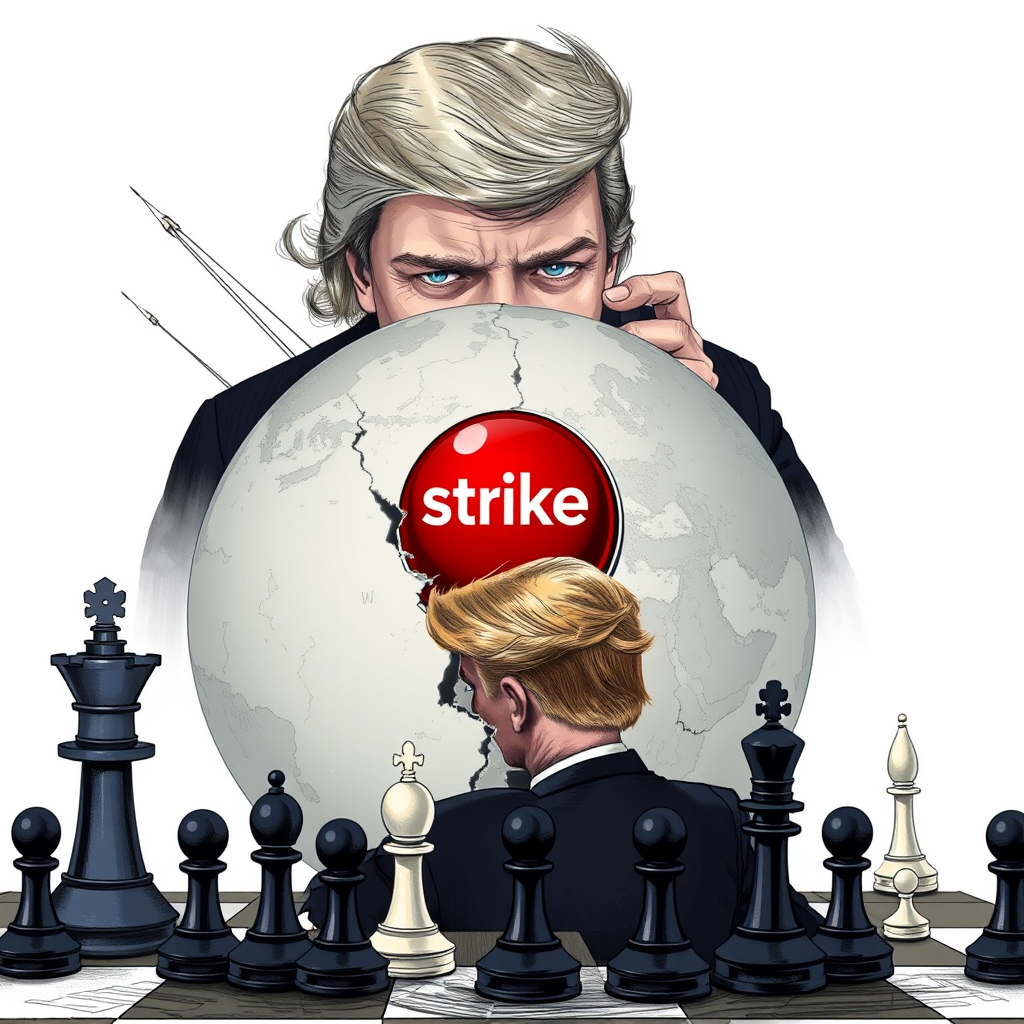Iran Talks Progress as Trump Considers Strike

Geneva – European and Iranian officials engaged in tense diplomatic talks Friday, seeking a path to de-escalation amidst escalating conflict between Iran and Israel, even as both sides continued military actions. The discussions, held in Geneva, Switzerland, occurred against a backdrop of heightened uncertainty, fueled by the possibility of direct U.S. military intervention.
U.K. Foreign Secretary David Lammy, prior to the meeting, indicated a narrow “window” existed to avert further crisis. While the talks concluded without an immediate breakthrough, Lammy emphasized the continued need for dialogue, urging Iran to re-engage with the U.S. He characterized the moment as “perilous,” stressing the importance of preventing regional escalation.
European ministers – including representatives from France, Germany, and the European Union – jointly reiterated longstanding concerns regarding Iran’s nuclear program and explored potential negotiated solutions. German Foreign Minister Johann Wadephul expressed cautious optimism, noting the Iranian side appeared open to further discussion, but underscored the crucial role of U.S. participation.
Iran’s Foreign Minister Abbas Araghchi, however, maintained a firm stance, stating that diplomacy could only resume once “aggression” ceased and those responsible were held accountable. This position was reinforced by fresh missile strikes launched by Iran targeting areas in southern and northern Israel, following Israeli strikes on Iranian military facilities. Israel claims to have significantly degraded Iran’s missile capabilities.
Adding to the complexity, former U.S. President Donald Trump is reportedly weighing a military strike on Iran, with a decision expected within two weeks. While signaling openness to negotiations, Trump’s statements have been ambiguous, oscillating between potential engagement and threats of military action. This unpredictability has further heightened tensions.
French President Emmanuel Macron outlined key discussion points for the talks, including curbing Iran’s uranium enrichment, overseeing its ballistic missile program, addressing its funding of regional proxy groups, and securing the release of foreign nationals held in Iranian prisons.
Despite the diplomatic efforts, skepticism remains. Israeli Foreign Minister Gideon Sa’ar dismissed the talks as a delaying tactic, suggesting Iran has historically used dialogue to stall for time. Iran’s Ambassador to the United Nations, Majid Farahani, placed responsibility for de-escalation on the U.S., suggesting a phone call from President Trump to Israeli officials could halt the conflict.
The situation is further complicated by a public spat between Macron and Trump following the G7 summit, with Trump accusing Macron of misrepresenting his reasons for departing early.
Ayatollah Ali Khamenei, Iran’s Supreme Leader, warned that U.S. military intervention would result in “irreparable” harm. The UN Security Council meeting, where Araghchi addressed the body, also drew criticism, with Israel’s ambassador condemning the decision to grant him the floor.
This confluence of military actions, diplomatic maneuvering, and political posturing paints a deeply concerning picture. While European efforts to foster dialogue are commendable, the lack of clear commitment from all parties, particularly the U.S. and Iran, suggests a fragile and precarious situation. The risk of miscalculation and further escalation remains alarmingly high, and a sustained commitment to de-escalation and genuine negotiation is urgently needed to prevent a wider regional conflict. The current reliance on reactive measures and public statements is insufficient; a proactive and unified diplomatic strategy is paramount.